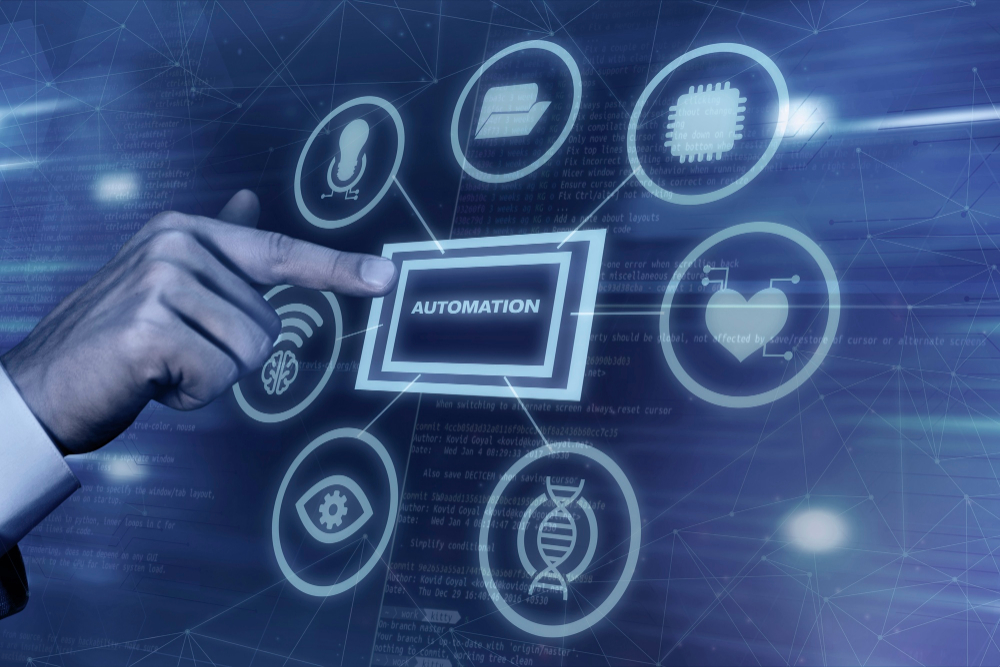Intelligent Automation in BPM Software
In today’s rapidly evolving business landscape, the integration of intelligent automation (IA) in Business Process Management (BPM) software has become a game-changer. Combining the power of artificial intelligence (AI), machine learning (ML), and robotic process automation (RPA), intelligent automation enhances efficiency, reduces errors, and enables smarter decision-making. This article delves into how IA is revolutionizing BPM, its benefits, challenges, and prospects.
The Evolution of Business Process Management
Business Process Management is a systematic approach to improving an organization’s workflow, making it more efficient and adaptable. Traditionally, BPM involved mapping out processes, identifying inefficiencies, and implementing improvements. However, with the advent of digital technologies, it has evolved to incorporate software that automates and optimizes these processes.
The latest leap in this evolution is the integration of intelligent automation. Unlike basic automation, which follows predefined rules, intelligent automation leverages AI and ML to make decisions, learn from data, and adapt to changes dynamically.
Components of Intelligent Automation
Intelligent automation (IA) is a transformative technology that combines several advanced technologies to enhance and streamline business processes. The key components of intelligent automation include:
- Artificial Intelligence (AI)
AI involves the simulation of human intelligence processes by machines, especially computer systems. It enables systems to perform tasks that normally require human intelligence, such as understanding natural language, recognizing patterns, and making decisions. In the context of IA, AI provides the cognitive capabilities needed to analyze data, learn from it, and make informed decisions.
- Machine Learning (ML)
Machine learning, a subset of AI, focuses on developing algorithms that enable computers to learn from and make predictions based on data. ML algorithms are trained on historical data to recognize patterns and correlations, which they then apply to new data to predict outcomes and automate decision-making processes.
- Robotic Process Automation (RPA)
Robotic Process Automation uses software robots (bots) to automate highly repetitive and routine tasks that typically require human intervention. RPA bots can mimic human actions, such as data entry, form filling, and transaction processing, interacting with digital systems in the same way a human would.
- Cognitive Automation
Cognitive automation extends the capabilities of RPA by incorporating AI and ML to handle more complex tasks that require understanding, judgment, and decision-making. This component enables systems to process unstructured data, understand context, and learn from experience.
- Business Process Management (BPM) Software
BPM software provides the framework for designing, executing, monitoring, and optimizing business processes. When combined with IA, the software can automate end-to-end processes, ensuring they are carried out efficiently and effectively.
Benefits of Intelligent Automation in BPM
Intelligent automation (IA) in Business Process Management offers a wide array of benefits that significantly enhance organizational efficiency, accuracy, and agility. By integrating technologies such as artificial intelligence (AI), machine learning (ML), and robotic process automation (RPA), intelligent automation transforms traditional BPM systems. Here are the key benefits of implementing IA:
- Increased Efficiency
Intelligent automation streamlines business processes by reducing the time and effort required to complete tasks. Automated systems can operate 24/7 without fatigue, ensuring that processes run continuously and efficiently. This leads to faster turnaround times and higher productivity. For instance, tasks like data entry, invoice processing, and customer service inquiries can be handled more quickly by automated systems than by human workers.
- Error Reduction
Human errors, such as data entry mistakes or miscommunications, can be costly and time-consuming to rectify. Intelligent automation minimizes these errors by ensuring that tasks are performed consistently and accurately. RPA bots, for example, follow predefined rules and workflows without deviation, significantly reducing the likelihood of errors.
- Cost Savings
By automating repetitive and time-consuming tasks, organizations can reduce labor costs and reallocate resources to more strategic initiatives. Intelligent automation also helps in reducing operational costs associated with errors, delays, and inefficiencies. Over time, the investment in IA technology pays off through substantial cost savings.
- Enhanced Decision-Making
AI-powered analytics provide deep insights into business processes, enabling data-driven decision-making. These systems can analyze large volumes of data to identify trends, patterns, and anomalies, offering valuable insights that human analysts might miss. This capability allows managers to make informed decisions that can improve process efficiency and organizational performance.
- Scalability
Intelligent automation allows businesses to scale operations effectively without a proportional increase in costs. Automated systems can handle increased workloads seamlessly, making it easier for organizations to expand their operations. This scalability is particularly beneficial during peak periods or when managing fluctuating demand.

Challenges and Considerations
Implementing intelligent automation (IA) in Business Process Management offers numerous benefits, but it also presents a range of challenges and considerations that organizations must address to ensure successful adoption and integration. Here are some of the key challenges and considerations:
- Initial Investment
Challenge:
The cost of implementing IA technologies can be significant, encompassing not only the purchase of software and hardware but also the expenses related to training, customization, and deployment.
Consideration:
Organizations need to conduct a thorough cost-benefit analysis to understand the potential return on investment (ROI). It’s important to consider long-term savings and efficiency gains against the initial expenditure. Planning for phased implementation can help manage costs better.
- Complexity of Integration
Challenge:
Integrating IA into existing BPM systems can be complex, requiring careful coordination of various technologies, such as AI, ML, and RPA, to ensure they work seamlessly together.
Consideration:
A detailed integration plan is essential. Organizations should involve cross-functional teams, including IT, process owners, and business analysts, to ensure that all aspects of the integration are covered. Partnering with experienced vendors or consultants can also mitigate integration risks.
- Change Management
Challenge:
Employees may resist changes brought by automation due to fear of job loss, disruption of established workflows, or unfamiliarity with new technologies.
Consideration:
Effective change management strategies are crucial. This includes clear communication about the benefits of IA, comprehensive training programs, and involving employees in the transition process. Emphasizing how automation can free them from mundane tasks and enable them to focus on more strategic activities can help ease resistance.
- Data Security and Privacy
Challenge:
Automating processes often involves handling sensitive data, raising concerns about data security and privacy.
Consideration:
Organizations must implement robust security measures to protect data. This includes encryption, access controls, and regular security audits. Compliance with data protection regulations, such as GDPR or CCPA, should be ensured to avoid legal repercussions and maintain customer trust.
- Maintenance and Upgradation
Challenge:
IA systems require regular maintenance and updates to function optimally. This can include software updates, re-training of AI models, and troubleshooting issues as they arise.
Consideration:
Establishing a dedicated team or partnering with a service provider to handle maintenance and upgrades can ensure that the IA system remains efficient and up to date. Proactive monitoring and a clear plan for regular updates are essential to minimize disruptions.
Future Prospects
The future of intelligent automation in BPM is promising. As AI and ML technologies continue to advance, their integration into BPM software will become more sophisticated. Future developments may include:
Hyper automation:
This involves automating every aspect of business processes, combining multiple IA technologies to create highly efficient and autonomous systems.
Enhanced AI Capabilities:
AI models will become more adept at understanding context and making nuanced decisions, further reducing the need for human intervention.
Integration with IoT:
The Internet of Things (IoT) will provide real-time data from connected devices, allowing systems to react and adapt instantaneously to changing conditions.
Greater Accessibility:
As IA technologies become more affordable and user-friendly, even small and medium-sized enterprises (SMEs) will be able to leverage these tools to enhance their operations.
Conclusion
Intelligent automation is transforming Business Process Management by making it more efficient, accurate, and adaptable. While the integration of AI, ML, and RPA presents challenges, the benefits far outweigh the costs. As technology continues to evolve, intelligent automation will become an integral part of BPM, driving innovation and growth across industries. Embracing these advancements today will prepare organizations for a more automated and intelligent future.
Century Software is at the forefront of providing robust IA solutions that cater to the diverse needs of businesses. Century Software’s advanced BPM tools integrate seamlessly with AI, ML, and RPA technologies, helping organizations navigate the complexities of intelligent automation. By partnering with Century Software, businesses can ensure a smoother transition to automated processes, maximize their ROI, and maintain a competitive edge in the market. Embracing these advancements today will prepare organizations for a more automated and intelligent future, driving sustained growth and success. Get in touch today!

